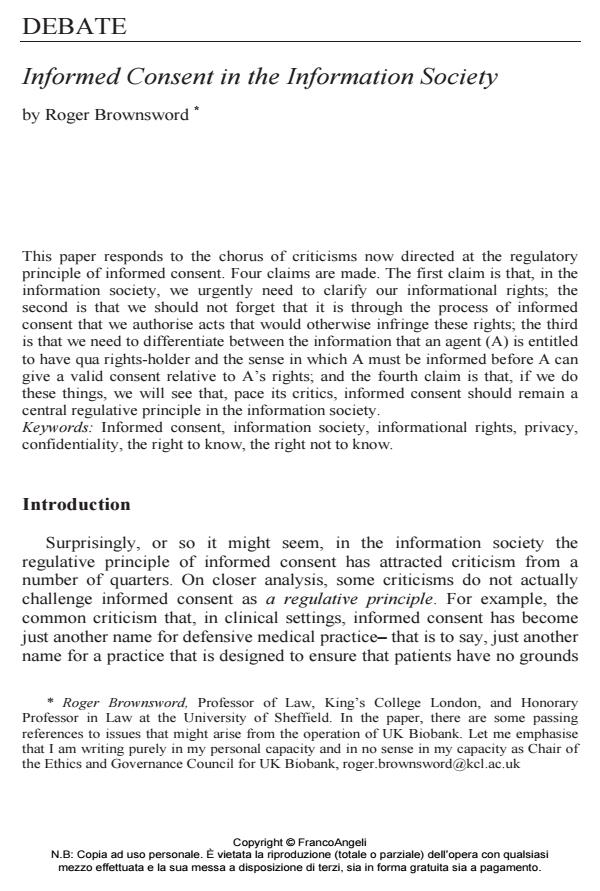Informed Consent in the Information Society
Titolo Rivista SALUTE E SOCIETÀ
Autori/Curatori Roger Brownsword
Anno di pubblicazione 2013 Fascicolo 2012/3EN
Lingua Inglese Numero pagine 30 P. 179-208 Dimensione file 153 KB
DOI 10.3280/SES2012-003011EN
Il DOI è il codice a barre della proprietà intellettuale: per saperne di più
clicca qui
Qui sotto puoi vedere in anteprima la prima pagina di questo articolo.
Se questo articolo ti interessa, lo puoi acquistare (e scaricare in formato pdf) seguendo le facili indicazioni per acquistare il download credit. Acquista Download Credits per scaricare questo Articolo in formato PDF

FrancoAngeli è membro della Publishers International Linking Association, Inc (PILA), associazione indipendente e non profit per facilitare (attraverso i servizi tecnologici implementati da CrossRef.org) l’accesso degli studiosi ai contenuti digitali nelle pubblicazioni professionali e scientifiche.
This paper responds to the chorus of criticisms now directed at the regulatory principle of informed consent. Four claims are made. The first claim is that, in the information society, we urgently need to clarify our informational rights; the second is that we should not forget that it is through the process of informed consent that we authorise acts that would otherwise infringe these rights; the third is that we need to differentiate between the information that an agent (A) is entitled to have qua rights-holder and the sense in which A must be informed before A can give a valid consent relative to A’s rights; and the fourth claim is that, if we do these things, we will see that, pace its critics, informed consent should remain a central regulative principle in the information society.
Parole chiave:Informed consent, information society, informational rights, privacy, confidentiality, the right to know, the right not to know
Roger Brownsword, Informed Consent in the Information Society in "SALUTE E SOCIETÀ" 3EN/2012, pp 179-208, DOI: 10.3280/SES2012-003011EN